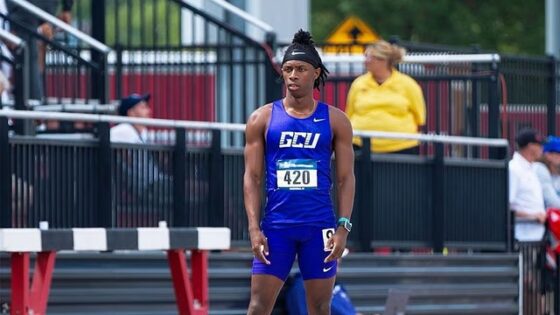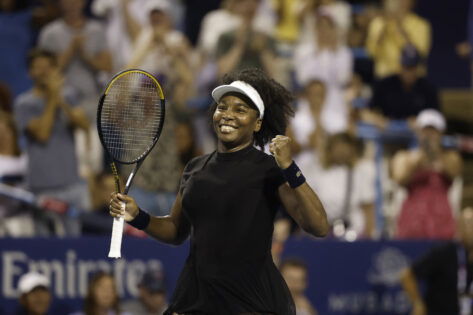It was supposed to be a statement race. The kind that reasserts dominance, silences doubters, and restores pride. But for Team USA at the 2025 World Relays in Guangzhou, it turned into another cautionary tale. With Noah Lyles pulling out of the 4x400m relay, Sha’Carri Richardson absent from the lineup entirely, and rising star Erriyon Knighton withdrawing last minute, the pressure fell on the mixed 4x100m squad to deliver. Loaded with elite names like Kenny Bednarek, the team had medal hopes stamped all over it. But fate, or perhaps just poor execution, had other plans. A mistimed baton exchange brought their run to an abrupt and painful end, adding to a growing list of relay disasters for the red, white, and blue.
And just as the dust began to settle on the track, an off-track controversy set social media ablaze. A high-profile NCAA athlete, frustrated by the U.S. squad’s flop, reacted to South Africa’s surprising 4x400m relay victory. But instead of measured analysis, the post unleashed a barrage of racially charged language and inflammatory remarks. Remarks that didn’t sit well with fans or media figures.
Chief among the critics was NBC Sports director Travis Miller, who responded with a scathing public statement, igniting a broader conversation about sportsmanship and respect. One that the track and field world couldn’t ignore. Erin Brown, who has never shied away from controversial takes, poured gasoline on the fire with a racially charged post on X that many found deeply offensive.
“Man he just got ate up all that reliable stuff goes out the window when school kids from South Africa raping you in 3rd leg. Knighton is the best curve runner in the world,” he wrote, referencing the chaotic handoff and South Africa’s incredible surge. The use of such provocative, dehumanizing language. Brown’s remarks didn’t go unnoticed. Travis Miller, who had already condemned the negativity swirling around Team USA, blocked Brown on the platform.
Cry me a river. Not interested in anything from someone I see saying things like this. https://t.co/Hq5enn7eB7 pic.twitter.com/n6WcEgouDh
— Travis Miller (@travismillerx13) May 16, 2025
Brown’s reaction? Even more reckless. “You track niggas are cold weenies out here ,” he posted. While South Africa surged to their first-ever relay gold, led by an electric final leg from Akani Simbine, American discourse once again found itself tangled in controversy rather than unity. Miller, who typically keeps his critiques focused on performance and professionalism, fired back with a pointed clapback that’s now gone viral: “Cry me a river. Not interested in anything from someone I see saying things like this.”
His reply wasn’t just a personal boundary. It was a line in the sand. A call for decency. For Miller, and many in the track community, the issue was no longer about a dropped baton or a missed podium. It was about the kind of tone and language that tarnishes the sport. The South African victory should’ve been celebrated for what it was: historic, electrifying, and well-earned. Instead, it was nearly overshadowed by a toxic outburst.
Team USA had entered the 2025 World Relays as heavy favorites, especially with Jamaica’s squad stumbling on Day 1. The mixed 4x100m relay, which featured a blazing-fast start, one slight miscue was all it took to unravel everything. In addition, former Olympic champion Justin Gatlin took to his Ready Set Go podcast in the aftermath and made waves by proposing a relay squad of his own. Gatlin championed Gabby Thomas and Erriyon Knighton, a lineup rooted in execution over celebrity. But even that sparked debate.
Simbine’s silent legacy and America’s baton blues
For over a decade, Akani Simbine has built one of the most quietly impressive sprinting résumés in the sport. While headlines often spotlight flashier names, Simbine has been consistently elite, clocking sub-10 times in the 100 meters. For 11 consecutive years, surpassing even Usain Bolt’s streak of ten. His national record of 9.82 still stands as South Africa’s best. Yet for all his brilliance, Simbine’s career has been defined not just by achievements.
Moreover, through injuries, pandemic shutdowns, and high-stakes heartbreak, Simbine hasn’t crumbled. He’s endured. While Simbine’s journey exemplifies resilience, Team USA’s legacy in the relay world has increasingly become one of frustration. The baton, just a 50-gram piece of metal, has repeatedly become their undoing.
The most painful of these came during the 2008 Beijing Olympics, when both the men’s and women’s 4x100m teams dropped the baton in their heats, missing the finals entirely. The baton curse struck again in Tokyo 2021, where a sloppy handoff between Fred Kerley and Ronnie Baker doomed the men’s team to sixth place in the heats. These weren’t isolated flukes; they echoed a long-standing pattern of U.S. relay struggles.
Where talent has too often been overshadowed by sloppy execution. Beyond the Olympics, the World Championships have told the same story. From a disqualification in Berlin 2009 for an exchange outside the zone to collisions in Daegu 2011 and Moscow 2013 to a disqualified silver in Beijing 2015, the American men’s relay squad has made a habit of turning podium promises into disappointment.
This year’s World Relays were supposed to be different. A fresh shot at redemption. But after another handoff meltdown and another chance lost, questions swirl louder than ever: has the world’s fastest relay team become its most unreliable?
The post “Cry Me a River”: NBC Director Issues Strong Statement to NCAA Star After Debate Grows Ugly appeared first on EssentiallySports.



